United Methodists lift 40-year ban on LGBTQ+ clergy, marking historic shift for the church
CHARLOTTE, N.C. — United Methodists lifted a 40-year ban on gay clergy and removed restrictions on same-sex marriage in a major step toward greater LGBTQ+ inclusion in the nation’s largest mainline Protestant denomination.
The votes were part of a series by the United Methodist Church's top legislative assembly between April 23-May 3 in Charlotte rolling back what many progressive and centrist Methodists viewed as overly restrictive policies. Others included removing a prohibition against UMC clergy and churches blessing same-sex unions, and striking a 52-year-old statement calling homosexuality “incompatible with Christian teaching.”
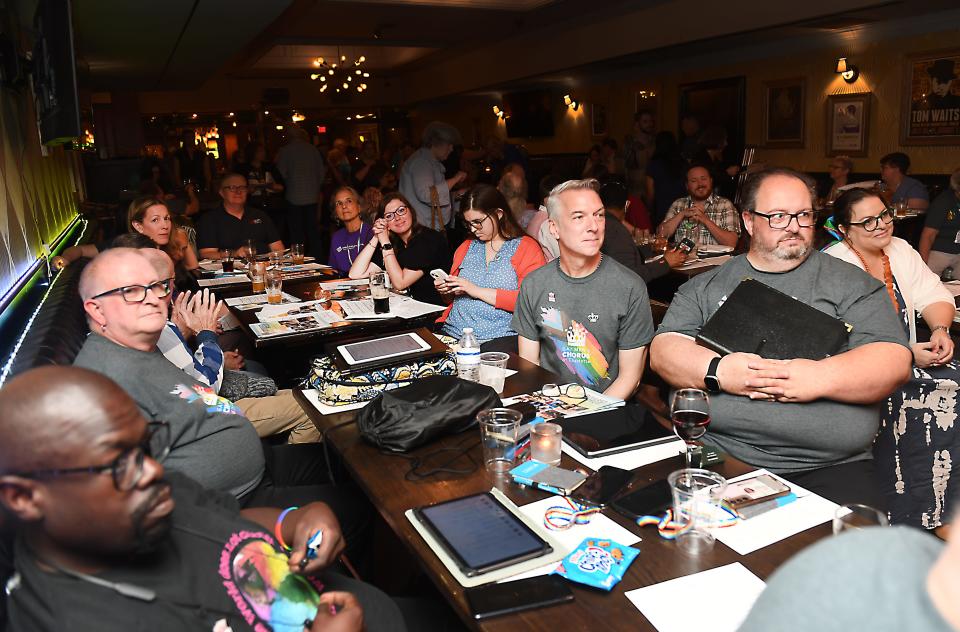
The UMC General Conference’s decisions reversed many of the policies traditionalists worked for decades to pass and protect. Beyond the legislative implications, the decisions usher in a new chapter for the UMC as it moves beyond a splintering in which 7,500-plus U.S. churches left following disputes over church policy and theology, including dealing with LGBTQ+ rights.
After the UMC General Conference voted to lift the clergy ban on May 1, a large crowd spontaneously broke out in celebration. Many in the crowd teared up and embraced each other, even across a fence between delegates and observers.
“It did not happen overnight,” Rhode Island pastor Rev. Effie McAvoy, a clergy delegate to the general conference, said in a May 1 news conference with members of a caucus of LGBTQ+ delegates. “We’ve been dealing with this and working so delicately and so deeply. Today is just the day it culminated.”
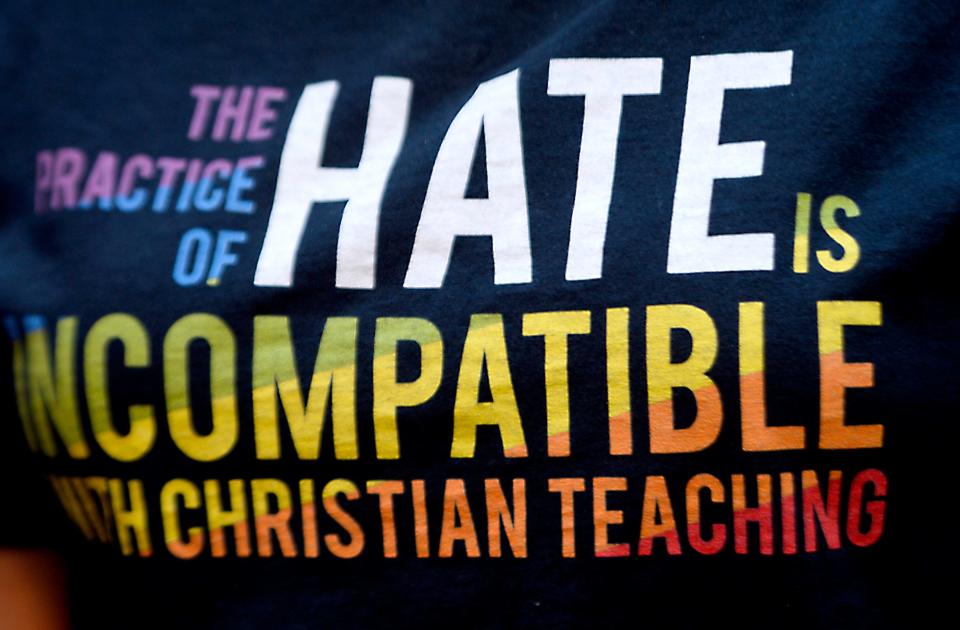
Following an unexpectedly devastating legislative moment for progressives in 2019 at a UMC General Conference special session, the caucus of LGBTQ+ delegates emerged to draft dozens of petitions for the 2024 general conference seeking to remove anti-LGBTQ+ restrictions. Comprised of 31 main delegates and 43 reserve delegates, the caucus then collaborated throughout the Charlotte gathering by constantly communication about important parliamentary procedures.
The work has paid off and “the UMC has eliminated anti-LGBTQ+ legislation from the (UMC) Book of Discipline, effectively ending 52 years of institutionally sanctioned discrimination,” McAvoy said in the May 1 news conference.
For Ohio pastor Rev. Angie Cox, there are immediate and tangible implications with the newly lifted ban on ordaining LGBTQ+ clergy. Cox, a lesbian and married, has sought to take the first step toward UMC ordination, called commissioning, six times in the past five years. Each time, the West Ohio Conference’s board of ordained ministry has rejected her candidacy.
“I know I’m called to ministry and know I’m called to be here,” Cox said in an interview. Cox said the decision to remove the ban on LGBTQ+ ordination is “an affirmation of the call by our official policies.”
Church delegates take on series of decisions on LGBTQ+ rights
Removing anti-LGBTQ+ restrictions was one of the most high-profile legislative decisions facing this UMC General Conference in Charlotte, a worldwide assembly that typically meets every four years but hasn’t gathered for a regular session in eight years.
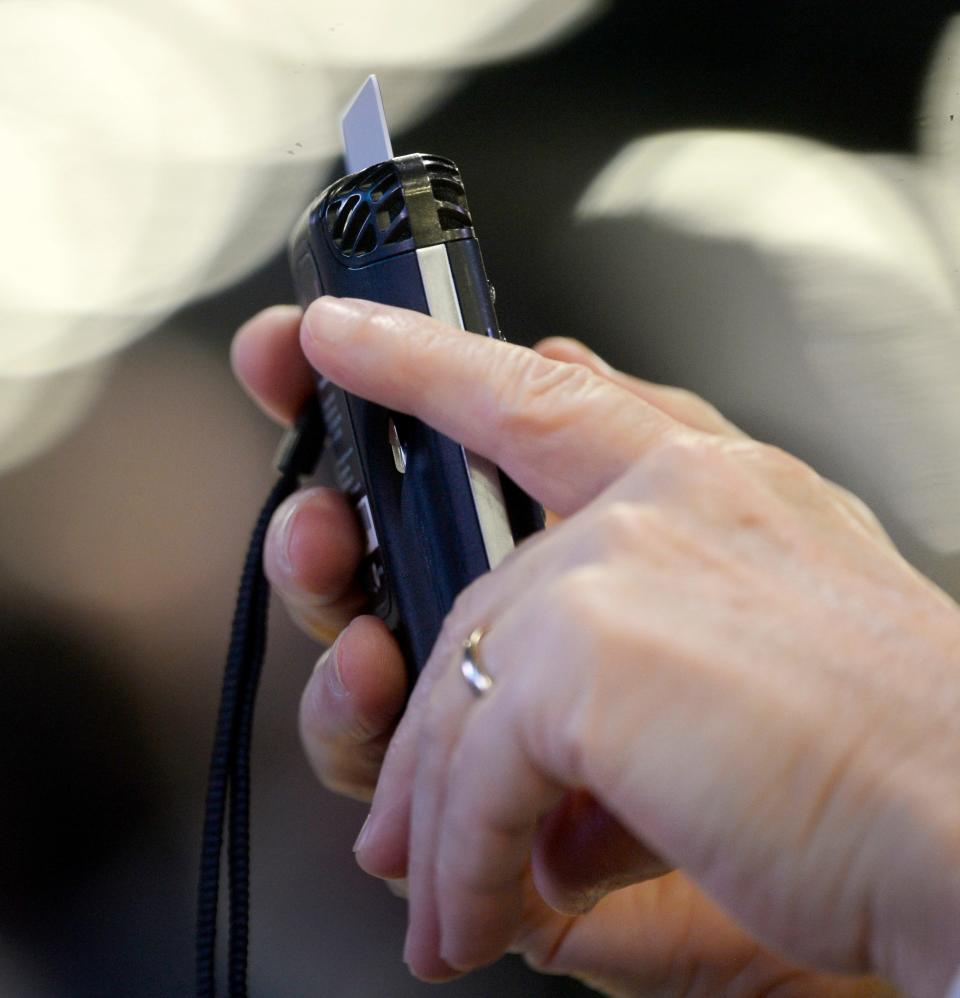
There were several major categories of LGBTQ+ inclusion-related proposals, called petitions, before the UMC General Conference in Charlotte. Those are:
A 48-year-old prohibition on the use of church funds to “promote the acceptance of homosexuality,” also known as the “funding ban." Two petitions seeking to remove that prohibition received approval Tuesday, April 30.
A 40-year-old prohibition against the ordination of LGBTQ+ clergy. The main petition seeking to remove that ban received approval Wednesday, May 1.
A 28-year-old prohibition against UMC clergy or churches blessing same-sex unions, ortherwise known as a ban on LGBTQ+ weddings. The main petition seeking to remove that ban received approval Friday, May 3.
A 52-year-old statement in the UMC Revised Social Principles that said homosexuality is “incompatible with Christian teaching,” which served as justification for subsequent anti-LGBTQ+ restrictive policies the UMC General Conference passed. A new version of the UMC Revised Social Principles that eliminates that statement received full approval on Thursday, May 2. Also, the new revised social principles define marriage differently than the previous version.
These decisions will have other indirect effects, such securing a deeper relationship between the United Methodist and Episcopal churches. The UMC General Conference approved a resolution April 30 affirming its full communion with the Episcopal Church following years of negotiations between the two mainline denominations — a conversation that previously reached an impasse due to the UMC’s policy positions on LGBTQ+ rights.
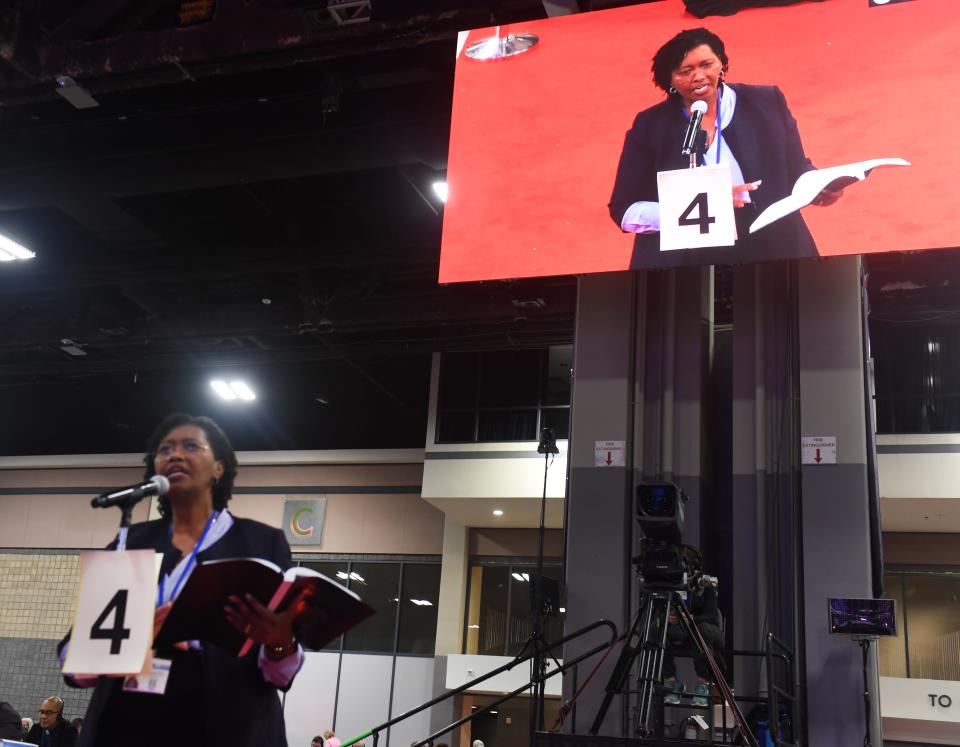
It will be some time before the new policies take effect.
Cox said she knows of prospective LGBTQ+ candidates for ordination who have waited to pursue obtaining clergy credentials until the UMC removed the prohibition. Those individuals will just be starting the yearslong process.
Cox already pastors a church in Columbus, but her inability to receive ordination credentials is both a symbolic gesture against her personhood and a limit on her participation in United Methodist life. For example, she's unable to serve as a clergy delegate in the regional legislative assembly or at the UMC General Conference. The West Ohio Conference board of ordained ministry could reconsider supporting Cox's commissioning as early as May, potentially positioning her for commissioning in June.
Cox said her sexuality has always been the “elephant in the room” in her repeated pursuit of candidacy for commissioning. With the decision to remove the ordination ban, “there’s an aspect of people finally seeing the goodness in the whole person,” said Cox. “Not just me, but for any LGBTQ+ person to finally be seen as whole in official structures is freeing."
Deviation from history of traditionalist wins
Traditionalists had successfully backed for decades more conservative policy positions on sexuality and marriage, which a coalition of progressives and centrists sought to neutralize this year.
“The General Conference has, as expected, rolled back not just decades of United Methodist policies but centuries of Christian teaching,” Mark Tooley, president of The Institute on Religion & Democracy, a group that long advocated for traditionalist policies in the UMC, said in a statement.
Part of traditionalists past success was the growing African delegation to the UMC General Conference, a contingent that is on average more conservative than its U.S. counterparts. But the recent exodus of mostly conservative churches in the U.S. depleted that delegation.
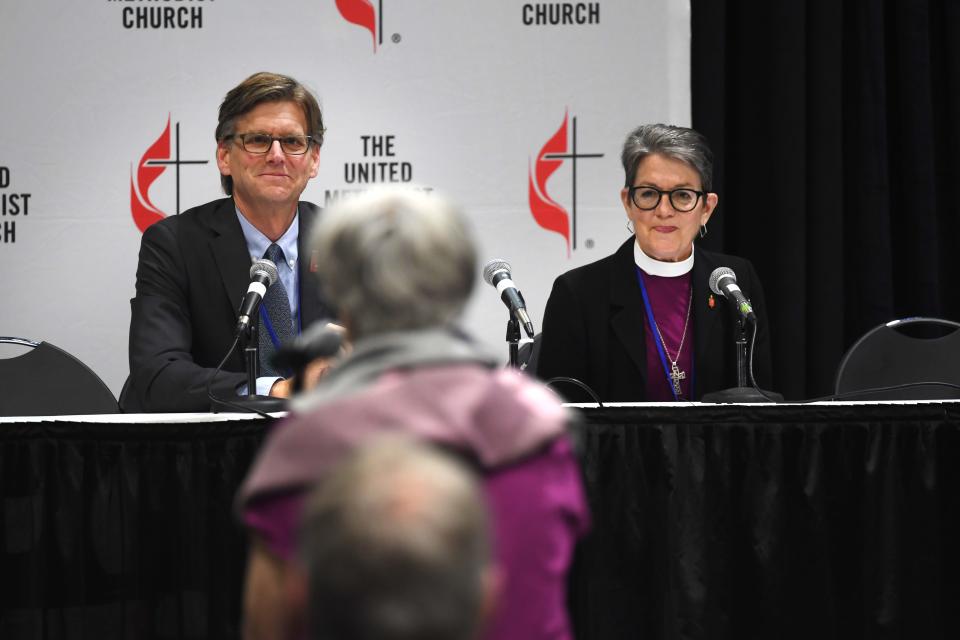
Many of the LGBTQ+ inclusion-related petitions at the general conference received approval with zero debate among the 700-plus delegates, who swiftly passed those items in votes on consent calendars. Still, the delegates passionately debated the subject before voting on a petition with a proposed definition of marriage in the new UMC Revised Social Principles.
The proposed language sought to “speak theologically to these matters but across different contexts,” said John Hill, chief executive of the General Board of Church and Society, a United Methodist general agency that helped overhaul the revised social principles, in an April 30 news conference. A dilemma facing the UMC as it sought to remove anti-LGBTQ+ restrictions was that other countries where United Methodists worship have different marriage laws and customs, such as criminalizing gay marriage.
But more conservative delegates felt the definition of marriage is non-negotiable.

“We have failed already as a United Methodist Church to be the ‘big tent’ that we have sought to create,” said Ohio delegate Holly Grant during a May 2 floor debate. “It cannot be done because I hold to my conviction that what this says in here is not compatible with scripture.”
The assembly ultimately approved an amended version of the proposed language that now says, “Within the church, we affirm marriage as a sacred lifelong covenant that brings two people of faith [adult man and woman of consenting age or two adult persons of consenting age] into union with one another and into deeper relationship with God and the religious community.
Liam Adams covers religion for The Tennessean. Reach him at ladams@tennessean.com or on social media @liamsadams.
This article originally appeared on Nashville Tennessean: United Methodist Church lifts 40-year ban on LGBTQ+ clergy

